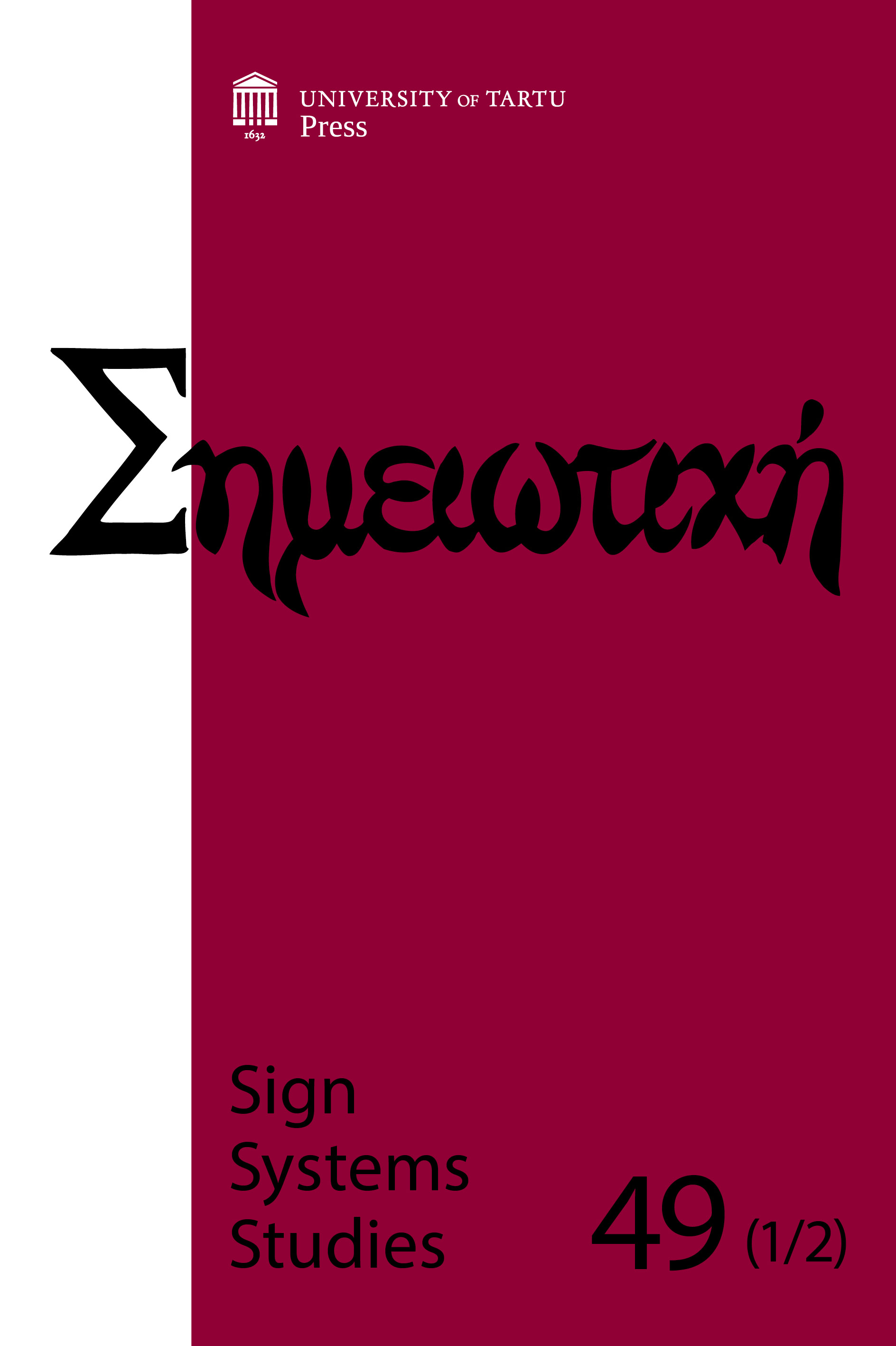Trajectories of anticipation: Preconceptuality and the task of reading habit
DOI:
https://doi.org/10.12697/SSS.2021.49.1-2.08Keywords:
Peirce, habit, preconceptuality, prejudice, metaphor, historyAbstract
The article characterizes Peirce’s concept of habit as a major contribution to a Peircean concept of preconceptuality, first, in relation to its function in the sign process, and second, in relation to other concepts of preconceptuality in cultural studies. Hans-Georg Gadamer’s notion of prejudice, Michel Foucault’s notions of the preconceptual and the dispositif, and Hans Blumenberg’s conception of metaphor all share certain key characteristics with Peirce’s notion of habit. The same comparison also highlights the fact that certain elements are missing from the current discourse on Peirce’s notion of habit: although any rendition of the concept of habit itself implicitly relies on a theory of historicity and of rule-association, these aspects only emerge explicitly in comparison with theories that more explicitly focus on such aspects.
Another question raised in the context of such a comparison is the relevance of habit for theories of conceptuality. Peirce claims that descriptions of concepts are best realized through the description of the habits involved in them. A major part of a concept’s coordinative power lies with the habits associated with the concept. However, no systematic inquiry into the possibility of rendering actual habits more definitive in comprehension has been undertaken. An attempt is therefore made to remedy that situation by elaborating on those aspects of Peirce’s theory of habit relevant to a theory of “reading” habit, and to sketch an outline of such a theory.


